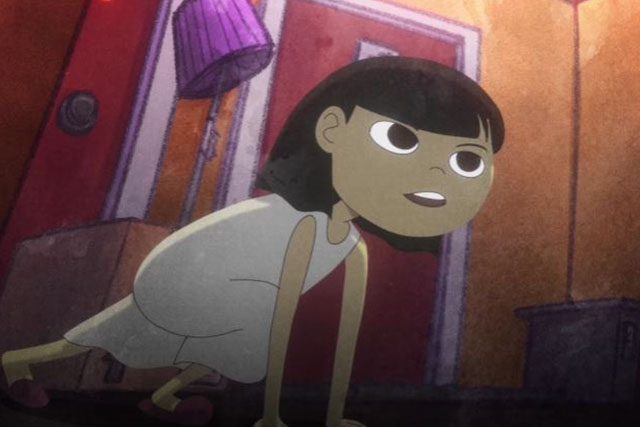
A multi-awarded animated short film caught Filipinos’ attention for highlighting the issue of child abuse and attempting to empower victims who are afraid to speak out on the topic.
“Lihim ni Lea” or “Lea’s Secret,” an animated film based on the book written by Augie Rivera and illustrated by Ghani Madueño, tells the story of a girl who thinks she has a special power in order to cope with the sexual abuses done by her father.
The book was published by Adarna House and the Soroptimist International of Hope Baguio in 2007.
It also includes a guide for children called “Three Touching Rules” which helps them determine if they are at risk of abuse.
The short film adaptation has earned awards from different prestigious international film festivals, such as the Grand Prize Animation—Silk Road Award at the Cannes International Independent Film Festival and the Best Short Film Animation at Buenos Aires International Film Festival.
The film is directed by Rico Gutierrez and narrated by comedienne and stage actress Eugene Domingo.
It also features the voices of actresses Candy Pangilinan and Alessandra de Rossi.
Gutierrez said that he and Rivera decided to adapt the book to an animated film so that it could be more accessible to people.
“[P]ara mas marami pang makaintindi at makapanood kung ano ’yung pwedeng mangyari sa kanila at kung anong puwedeng gawin nila kung mangyari sa kanila ito,” he said in an interview.
“Marami tayong hindi alam sa tema, ang dami tuloy mali-maling information tayong nakukuha,” Gutierrez added.
“Nangyayari siya sa lahat, mayaman, mahirap… at kailangan tayo mag-raise ng awareness para maprotektahan natin ang mga bata,” he further said.
View this post on Instagram
The animated film, particularly its theme, was well-received by some Filipinos who lauded its attempt to open discourse about a topic usually considered taboo among conservative families.
“Aaaghhh I wanna see the animated film. The story is very touching and heart-wrenching. We need more children’s books and shows that empower them to stand up against abuse,” a Twitter user said in response to reports on “Lihim ni Lea’s” victory.
“I hate that they feel helpless and powerless most of the time, especially now that abuse is increasing due to lockdowns. Child abusers deserve nothing else but the pain they inflicted (on) those children to come back to them, HARDER!!!” she added.
“Apparently, this is also a book! I hope I could see the film and buy the book. Psych tidbit: Talking about trauma with kids in an honest and supportive way helps! These kinds of media will definitely help open those conversations,” another online user said.
“AHHHHH!!!! The magic and the strength ‘Ang Lihim ni Lea’ holds. Para sa mas marami pang matapang na kuwentong pambata,” exclaimed another Filipino with a heart emoji.
Increased abuse amid lockdown
The United Nations Children’s Fund (UNICEF) recently reported that the coronavirus pandemic has aggravated online sexual abuse and exploitation of children in the Philippines amid stay-at-home guidelines.
READ: Online child sex abuse cases triple under lockdown in Philippines
Its studies reveal that two in 10 children are vulnerable to online sexual exploitation and abuse.
“Children are increasingly becoming victims of circumstances that are harmful to their development and well-being. This must stop,” said UNICEF Philippines Representative Oyunsaikhan Dendevnorov.
Children who are victims of sexual abuse may experience low self-esteem, trauma and nightmares. They may also experience unexplained bleeding of the genital areas and bruises.
If unchecked, the symptoms can lead to mental health problems, suicide, alcohol abuse and dependency on illegal drugs.









